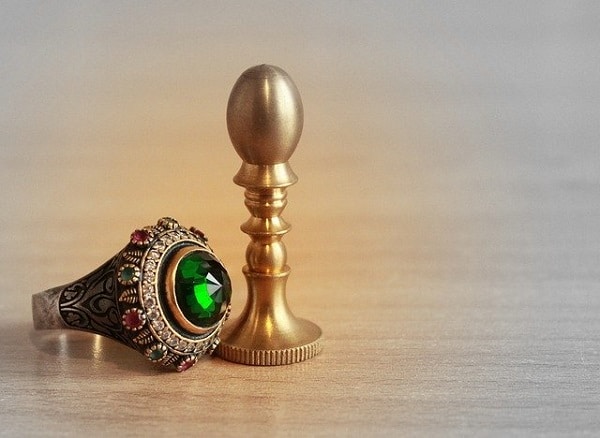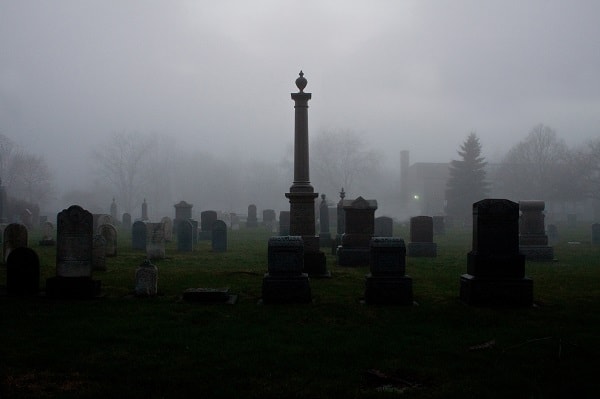Characters are shaped by their pasts – that’s why so many superheroes have spin-offs dedicated to telling their origin stories.
While you don’t need to write detailed accounts of what happens to make your protagonist who they are today (though you can if you like!), having some idea of where they came from can shape your character and narrative at large.
Like all genre fiction, fantasy relies on many tried-and-tested tropes and archetypes to appeal to longtime fans of the fantasy genre and its sub-genres.
Princes, princesses, assassins, thieves – they’re all common elements in fantasy novels, and a lot of of the best books in this genre feature protagonists of this origin.
But you don’t have to.
In this article, we explore 10 unusual jobs grounded in history that can easily be adapted to a fantasy setting and help your novel stand out from the crowd.
Protagonist #1: The Whipping Boy
The term ‘whipping boy’, while still used in modern vernacular, actually relates back to an appointed position in the medieval European court, where an unlucky child was flogged in place of the royal heir.
Typically coupled with the prince from a young age, the pair would bond, and this close friendship would serve as a deterrent for bad behaviour; should the prince step out of line, his friend would receive the punishment in his stead.
How It Can Work
There are plenty of things you can do with this type of character, depending on how you also choose to characterise the prince.
Is he sympathetic to his friend’s suffering? Or is he cruel and twisted, misbehaving purely to see his whipping boy punished?
Having a protagonist in this tortured yet esteemed position sets up a great opportunity for a complex, character-driven narrative that navigates the intricacies of duty vs. friendship.
There’s also the option of going down the prince-as-villain route: how much punishment can one endure before they snap?

Protagonist #2: The Executioner
‘The man who passes the sentence should swing the sword.’
Okay, Ned Stark, that might be best practice and all, but it’s not how things were actually done during the Middle Ages.
Historically, the royal executioner was some poor random appointed by king the to do his dirty work. Given the unsavoury nature of the profession, no one ever put their hand up to do this job.
And so, after the initial royal appointment, the position sifted down through families in a bloody legacy of beheadings, making social pariahs of them all.
How It Can Work
I’m not sure about you, but I love a good protagonist with a tormented soul.
Having a morally sound main character forced into a life of murder is just the kind of heart-wrenching angst that can really propel a dark, gritty fantasy.
Aside from the clear moral conundrum facing our poor executioner, every day they turn up for work could also be the inciting incident of a larger plot.
Does the beheading of a victim open the gates of war? Are they forced to execute an acquaintance (or better yet: a loved one), igniting a long-suppressed desire to turn their sword on their ruler instead?
Or perhaps they’re instructed to execute a wizard, whose death unleashes a powerful magic or curse?
Protagonist #3: The Minor Royal
Not all those born to the royal bloodline are destined to rule. There are aunts, uncles, cousins, disowned brothers and sisters…
Any one of these might never see the inside of a throne room – so why bother with a protagonist 300th in line to the throne?
Let’s take a look at some of the reasons.
How It Can Work
Highlighting the frustrations your protagonist faces on a daily basis is a great way to get readers to empathise with their less-than-desirable situation.
Is the lowly royal actually the best person for the job, but forced to sit back and watch their incompetent relative run the kingdom into the ground? Or are they the only gentle heart among a family of tyrants?
Even if you choose to build a story around your MC’s unfortunate position, it doesn’t mean they can’t end up on the throne.
Does an act of war take out the whole bloodline except for our insignificant little hero? Or does jealousy win out and send your protagonist straight to the other end of the alignment spectrum?
That is up to you.

Protagonist #4: The Eunuch
Ah, the poor eunuch. He’s certainly been dealt a rough hand in life. Not only has he had his genitalia removed from a young age, he’s also misrepresented in popular culture.
TV sensation Game of Thrones brought eunuchs to the modern-day household in the form of Varys, the Master of Whisperers – also known as the Spider.
While his cunning and untrustworthy characterisation is not dissimilar to depictions to the Ming Dynasty eunuchs of China, eunuchs were generally favoured servants of the royal court due to their perceived lack of personal agenda.
How It Can Work
Eunuchs held powerful positions. Such a protagonist provides a fantastic position to really get into the intrigues of court life without relying on someone with a royal title.
The character also presents a great opportunity for diversity in the exploration of gender identity or the impact of castration on the psyche.
The creation of eunuchs was also a form of punishment, which opens the door for an engaging story of redemption (if your character wasn’t falsely accused, that is).
Given the life-long result of such a criminal sentence, eunuchs were often shunned as outcasts, meaning this protagonist is so versatile, he can be found at the top of society – or the very bottom.
Protagonist #5: The Harem Member
As many fantasy writers predominately draw inspiration from Anglo-Saxon history, it can be refreshing to find a novel with a wider scope.
While the harem might seem like the stereotypical teenage boy’s fantasy, it played a significant role in many Islamic countries, the most famous of which, perhaps, was the ancient Ottoman Empire.
While it’s true the harem did host the wives and various sexual partners of the sultan, it was also home to children and other female relatives.
Given that these women were in charge of raising future heirs and among the nearest and dearest of the current ruler, they held a great deal of power and respect.
How It Can Work
There’s been a huge surge in demand for strong, powerful female protagonists, and a member of the harem presents a great opportunity to build such a character.
Whether it’s a struggle against the internal hierarchy of the women, or backseat manipulation of the ruler himself, there are many exciting challenges to explore.
With such a large number of women tied to the one man, this platform also enables you to explore polyamorous relationships and female sexuality.
While there is always the option to have your protagonist fight to escape an oppressive and abusive situation, you can also take the route of empowerment and liberation.
It’s your world, after all – the norms are what you make them.

Protagonist #6: The Wise Woman
Despite the somewhat flattering title, the medieval wise woman was far less revered.
Looked down on by traditionally trained physicians, the wise woman was the poor man’s medic, diagnosing and treating a range of conditions from sore throats and the common cold to childbirth and abortion.
With herbal ingredients and ‘quack’ remedies, this type of medicine relied on tradition and knowledge passed down through generations.
But being a healer to the peasants was not without its dangers: mixing herbal concoctions toed the line of witchcraft, resulting in trials in which it was impossible to prove one’s innocence.
How It Can Work
The obvious choice with the wise woman is to go down the witch path.
Is she using magic to cure her patients? Does she consciously summon the dark arts, or stumble upon them by chance?
If you’re wanting an enemy larger and more sinister than biased law enforcement, then perhaps your wise woman can treat patient zero of a devastating new plague.
But is it a mutated virus or the test run of magical bio-warfare?
Who knows? I’d sure like to find out, though.
Protagonist #7: The Leech Collector
Nothing about this medieval profession sounds appealing. As leeches were an integral part of ancient medicine, someone had to be tasked with collecting the little blood-suckers.
Despite the icky nature of the job description, leech collecting was typically women’s work.
While some collectors were fortunate to have an old horse or cow at their disposable to use as bait, generally leeches were collected by wading through the swamps, bogs and marshes, where the vampiric little worms were plentiful.
Apart from being gross, leech collecting was also dangerous: in addition to the ever-present possibility of infection was the chance of death by blood loss.
How It Can Work
While the leech-collecting process itself doesn’t necessarily lend itself to heroics, it does place the protagonist in the position to unearth the beginnings of a great adventure.
Given the time spent wading through bogs, they could quite literally step on their own inciting incident.
Is there a long-lost magical artefact hidden in the mud? Something dark and powerful? A corpse?
Any one of these things could kickstart the hero’s journey – just by trudging barefoot through a swamp.

Protagonist #8: The Sin-Eater
While this job title sounds far more badass than it actually is, there’s still plenty of juicy potential in a sin-eater’s line of work.
In order for the souls of the departed to be laid to a peaceful, eternal rest, loved ones would place a piece of bread or pastry on their chest before calling the sin-eater to do their work.
Supposedly, all their sins of the departed loved one would be soaked into the roll in order for them to pass into the afterlife fully cleansed.
It was then the role of the sin-eater to come in and eat the bread, quite literally eating the sins of the deceased.
How It Can Work
Unsurprisingly, the sin-eater was a highly stigmatised profession, with most commonfolk hesitant to even look sin-eaters in the eye lest they risk bad luck.
Being socially outcast for factors beyond their control is a great way to build sympathy for your protagonist, so the sin-eater is already ticking boxes there.
Sin-eating also carried with it a great deal of danger given its relationship with witchcraft and the dark arts, meaning many sin-eaters had to work in secret, as the act was punishable by death.
On a more superstitious level, as sin-eaters were absorbing the sins of the dead, it was feared that the more customers they served, the more tainted with darkness they became – which could be an intriguing premise for a twisted, dark fantasy.
Protagonist #9: The Undertaker
The art of undertaking hasn’t changed much throughout the years, except that in medieval times, the undertaker was also required to be a skilled carpenter capable of producing the coffins for their customers.
Unless the corpse was that of a rich and important person who required embalming, there wasn’t much more to the undertaker’s role aside from transporting the body from the house to the cemetery.
But that doesn’t mean this job is a creative dead end.
How It Can Work
The deceased have secrets. Some follow them to the grave; others might only come to light after they’ve departed – and our undertaker is right in the middle of it all.
Mystery, deception, intrigue… It’s easy to become an unwitting pawn in a royal power play when you’re charged with moving the dead.
Has the heir to the throne passed on in less than natural circumstances? Perhaps the undertaker buries one ruler, only to see another in disguise fill his shoes?
Or maybe there’s something more supernatural at work, and the corpses he lays to rest in their graves don’t seem to stay where he puts them…

Protagonist #10: The Butcher
To make the profession of butchery slightly more interesting, we need to journey outside the sphere of European history and into feudal Asia, where this line of work earned you the social caste of ‘untouchable’.
Anyone tainted by death – including our friends the executioner, the undertaker and the butcher – often found themselves segregated in their communities.
Butchers were among the lowest of the low in the feudal Japanese caste system, with those of the upper echelons even going as far as to label them eta, or ‘an abundance of filth’.
That’s some pretty heavy stigma for someone in charge of providing protein to the people.
How It Can Work
The butcher-by-trade is likely to gain quick support from readers due to the struggles of their day-to-day life – especially as this profession still exists today, practically stigma-free.
In addition, with the caste systems of medieval east-Asia forbidding marriage between different levels of society, the butcher could never hope to better their situation or marry outside of it.
If a romantic subplot takes your fancy, a forbidden cross-caste love affair could be right up your alley.
You don’t need to aim for the stars and have your butcher fall for a warrior or princess – even courting a lowly farm boy or girl would be seen as punching above their weight.
Committing even a minor crime as a butcher or other eta was punishable by death, so it certainly raises the question of what some one is willing to risk for the love of their life.
***
While the heroic prince, the reluctant farmboy and the morally askew assassin are common (and successful) beginnings for your fantasy MC, you are by no means limited to these professions.
Having a fantasy world with groundings in reality is the perfect way to build authenticity. Any historically horrible or interesting job will a provide a compelling backstory for your protagonist.
Whether you build the narrative around their profession and the dangers it brings, or simply use it as an inciting-incident-sparking plot device, research into careers of old can unearth a wealth of inspiration.
Do any of the above origin stories get your creativity churning? Have you uncovered any other cringe-worthy histories that would make for a compelling tale?
We’d love to hear from you in the comments!